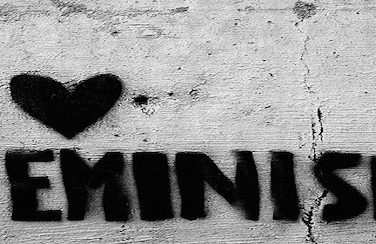As society begins to speak out against the injustices of the patriarchy, Emily Clarke explores the significance and meaning of silence, and why it must now be broken – to benefit both men and women.
‘We must not stay silent,’ were the words of Marie Laguerre as she posted a CCTV video of a man assaulting her outside a Parisian café onto Facebook. It was a video that entered into the zeitgeist of #MeToo and #BalanceTonPorc – and caught in the tidal wave of flourishing feminist discourse, it quickly went viral.
Equality is woven into the French sensibility; a rallying cry in its motto. Yet Laguerre’s video – and the #BalanceTonPorc movement – went viral because egalité is simply not experienced on the streets of France: harassment and misogyny are a prevailing aspect of a woman’s daily life.
It happened to me, too.
France has, in recent months, introduced new legislation against sexual violence. With 83% of French women reporting that they have been subject to intimidating comments on public transport, new on-the-spot fines for sexual harassment are a step towards ensuring, as Emmanuel Macron said, that ‘women are not afraid to go outside.’

Yet it is no surprise that for so many years, women have remained silent – and continue to be.
Challenging a man is a risk – when threatened, women learn the ‘survival tactic’ of diffusing the situation: avoiding eye contact; crossing to the other side of the road; smiling in compliance. In a patriarchal climate of silence, speaking out is often more trouble than it is worth. And even if a woman does raise her voice, she nevertheless may not bear the fruits of her labour – both Donald Trump and Brett Kavanaugh are in the White House today, despite historic allegations against them.
Blessed be the fruit.
Speaking out is important – I am certainly not discouraging that. We have come a long way in recent years in listening to women – and believing them. Yet the scourge of patriarchal silence is not solely an epidemic that affects women. Toxic masculinity is a poison that runs rife in the veins of men as well.
The patriarchy is a strong force. It has bound and gagged the bodies and words of all those who identify as men, women or non-binary for centuries.
Suicide is the biggest killer of men under 35 – and they represent 76% of suicides overall. 95% of prisoners are men; 87% of rough sleepers are men, and men report much lower life satisfaction than women. I know men who say they have felt inadequate because they do not have the same desire as others to intimidate women; who did not want to be part of a culture that disrespects women – and so thought there must be something wrong with them.
Toxic masculinity is an epidemic of silence. Men who fear they are different – who fear that there is something wrong with them – are afraid to raise their voice in a society that still sends out the message that they must ‘man up’. Encaged in a culture of machismo, men are too scared to admit – to other men – their feelings of inadequacy or incompetence. So many still follow the patriarchal crowd – even when they don’t feel they fit in.
The patriarchy is a strong force. It has bound and gagged the bodies and words of all those who identify as men, women or non-binary for centuries. It is not an easy power to overcome – but recent movements are beginning to shatter long-held beliefs and give people the confidence to stand up and fight. We are rightly beginning to listen to the voices of women – and embedding a new culture of feminism into the zeitgeist. Society is ready to listen, and men should play a part in this too: we must address both sides of the coin for this omnipotent epidemic of silence to finally be beaten.
Cover Photo: TitiNicola (Wikimedia Commons); Licence: CC BY-SA 4.0






